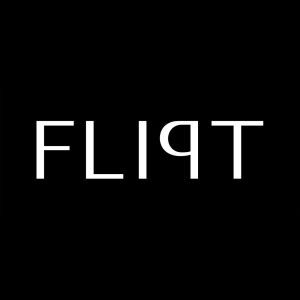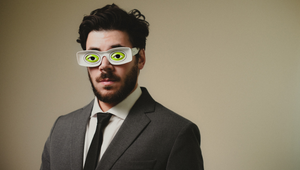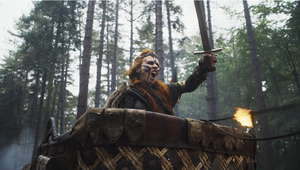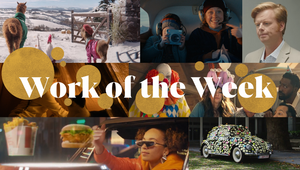
The Directors: Kit Lynch-Robinson
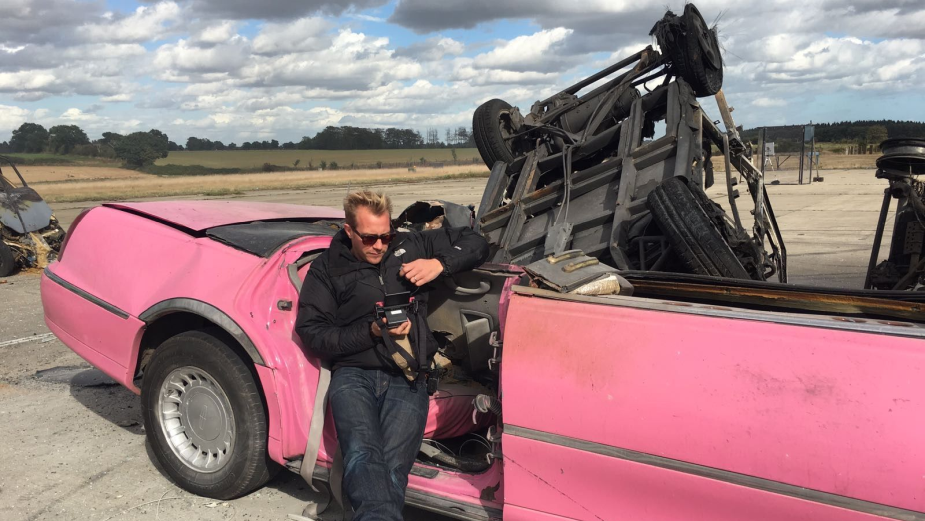
Kit is a specialist in automotive, stunt / action scenes, adventurous journeys across continents, working with A-listers and stretches the imagination of what a car commercial can be.
These specialisms have grown out of work for The Grand Tour and Top Gear; travelling around the world, driving fast cars, and blowing stuff up. This TV work is underpinned with 20 years of working in advertising.
Recently Kit has been series director for the Chris Hemsworth show 'Limitless’; executive produced by Darren Aronofsky; airing on Disney Plus and National Geographic.
Kit also directed Quibi's 'Elba VS Block' that sees Idris Elba face off against Ken Block in a series of vehicle-based challenges.
Name: Kit Lynch-Robinson
Location: London / LA
Repped by/in: FLIPT UK & USA
Awards: Gold, Silver and Bronze Lions, Clio, Creative Circle
LBB> What elements of a script sets one apart from the other and what sort of scripts get you excited to shoot them?
Kit> I love a challenge… whether that’s how to actually make something or whether it’s more of a challenge to get a script into a better place, through collaboration and graft. One thing working in television has taught me is the importance of story… and that carries though to advertising… and it's not necessarily story in terms of Goldilocks and the three bears – it can be more nuanced… but there needs to be a why. And I try to put my general public hat on – why would I care – why would this ad catch my attention. I love to get try and get the feeling of being in cars over to the audience, whether that’s brain boiling speed or smooth rides and luxury. It's about transporting the customer into that fantasy. Also people falling over, being hit in the face with frying pans, rug pulls... The secret to a good prat fall is to drop a load of files and paperwork when you fall.
LBB> How do you approach creating a treatment for a spot?
Kit> I find there are some scripts that I instantly know how I want to make it – I can see it from the moment I start reading it and it’s hard to get my thoughts out onto the page quick enough! And there are the scripts that I initially start reading and am ambivalent about, and then I start working on them, thinking laterally and suddenly I have fallen in love and worked out a way in which I want to make it work. How can I move it forward, make it better but still be within the bounds of the creatives’ vision.
In terms of process, it’s always a bit different. Some will be camera and visual tests, some will be visual research or films and stills – some will be just thinking and scribbling and discussing with my producers or random experts I know. I love that initial call with the creatives – I like to come to those calls with some ideas but I often am inspired by them, not to mention whether our creative energies are compatible.
In terms of getting it into actual treatment shape, it always starts with writing. I embrace hyper focus, get jacked up on coffee and loud music and just write. I also tend to write better if I haven’t eaten. I then switch to visual stim, then back to writing, editing paragraphs, starting again. I feel very strongly about just actually sitting down and working. It’s hard and you have to really graft but it’s important to train yourself to get into the zone quickly and at any moment. We all have such busy chaotic lives whether that’s kids or other jobs or just the distractions of the world, you have to take the small windows and maximise the time. And don’t be scared to change direction, take the hard decision to throw it out and start again if you need to.
LBB> If the script is for a brand that you're not familiar with/ don’t have a big affinity with or a market you're new to, how important is it for you to do research and understand that strategic and contextual side of the ad? If it’s important to you, how do you do it?
Kit> I work a lot in the automotive sector and it’s really important for me to understand the model of the car we are making an ad for. I have worked in the sector for so long and on the editorial side as well as the ad side so I know what demographics most cars are aimed at – but that doesn’t stop me reading every review of the actual model, the competition and the previous models. I want to understand the customer. I want to know the type of person who buys a hot hatch compared to a Crossover SUV. I am also fascinated by the cultural psychology of people from different counties... why in Europe an estate car or Wagon is seen as the coolest car you can have because it shows you have succeeded as a family… that’s not the same in the UK and in the USA. Research and talking to people. I love to talk to people, to ask questions.
LBB> For you, what is the most important working relationship for a director to have with another person in making an ad? And why?
Kit> Whoever the director is talking to at that particular moment. For me, filmmaking is a focused collaboration – whether that’s the DOP, the editor, the client, the agency, the special effects team - everyone is fundamental to the result. If they aren’t, then they shouldn’t be there. I firmly believe in getting everyone to push in the same direction to achieve the best result. The people you employ are the people who are specialists in their field. The job of the director is to transfer what is in their head, the emotion, the vision, the goal and let the experts help them achieve it. There is nothing better than pushing people to achieve something incredibly difficult and doing it in a way that they want to solve it because they are excited about doing it. That’s not to say I don’t disagree with experts – it’s important to think laterally and really push specialists by saying ‘what about if we did this?’ Sometimes my suggestions are well thought out and how we end up doing it, sometimes they are naïve but more often than not it provides new and interesting ways to do something cool.
LBB> What type of work are you most passionate about - is there a particular genre or subject matter or style you are most drawn to?
Kit> I love work that puts the audience first – and I guess that’s stems from getting used to audiences tuning in to my TV shows. I want them to be entertained and engaged in my ads too! Work that is actually entertaining, interesting or just stunning. I 100% believe that advertising is for advertising a product but it needs to engage and be great. I grew up making internet virals and I loved them – they were designed to be shared and to be entertaining or funny or shocking. They are idea first, aesthetics second. Sometimes you get to do both. And they are the most fun. I find we lose sight very quickly and get wrapped up in the industry – forgetting that people don’t really care as much as we do… unless it’s a great piece of work. Great ads resonate with the public and we should strive to do more great work - braver, cooler, mini films.
LBB> What misconception about you or your work do you most often encounter and why is it wrong?
Kit> I guess it’s mostly around the television vs ad boxes debate. I have worked in both advertising and TV for years and years and love doing both. My reel is littered with both because I like the work but agencies can sometimes be a bit ‘he’s a TV director’ and TV companies can be a bit ‘he’s an ad director’. I also understand that because my TV work is ‘unscripted’ it maybe doesn’t come across as me being able to direct a scene, which is nonsense... I plan every scene but then also have to allow for the unexpected to happen and react quicker than in a drama setting. Its incredible training for when I am doing a scripted scene – that confidence to let the magic in. I see myself as very lucky to do both and will continue to do projects I enjoy, whatever format they happen to be. I cross pollinate so much experience from ads to TV and back again that I just think it’s a benefit. They are different disciplines and I wouldn’t want to give up either! They are both fulfilling in such different ways.
LBB> Have you ever worked with a cost consultant and if so how have your experiences been?
Kit> I’ve never worked side by side with them... I often question the economies of so many things in the world – would we not be better just spending money on the thing rather than the consultants or the testing around it? There have been some pirates in advertising in the past so I can see a distrust from clients worried they aren’t getting value for money. So I can see a need for cost consultants. I think there are some very good cost consultants and some terrible ones - same as anything. As long as the idea is still doable to the right level and people are allowed to make a profit then it’s all good. I don’t like waste or excessive spending for the sake of it and limitations can lead to more interesting creative choices. But sometimes stuff does just cost what it does and you have to be careful not to drive down costs so much that you dilute enthusiasm and creativity. Getting it done is not the same as honouring the idea in the best way.
LBB> What’s the craziest problem you’ve come across in the course of a production – and how did you solve it?
Kit> Most of Top Gear and The Grand Tour was built on things going wrong – not writing it in but knowing something was going to happen. And that lead to some of the best moments in the shows. Cranes falling over, cars catching fire – you know, the normal stuff that happens! On one road trip we were three days behind schedule just after one day. We had miscalculated the speed at which the vehicles could travel. Some very hasty camping arrangements in a jungle village and an attitude of just keep going. We ended up needing the extra days as the bridge we were building over a river in Northern Thailand had been washed away and we needed to start again. A-listers breaking an ankle two days before filming, cars breaking down and having to get someone to drive all night to get a replacement. In ad world cars breaking down is frustrating but my experience in overcoming adversity in TV helps me keep a cool head and work out a solution. If you have the right team, you are golden.
LBB> How do you strike the balance between being open/collaborative with the agency and brand client while also protecting the idea?
Kit> Make everyone part of the conversation. Make it a conversation, ask the questions that everyone is skirting around – get to the point. Then solve it. Together. I find people push problems down the road for later, it causes anxiety and a bigger problem. Just talk. We are all there to deliver the same goal of a great piece of work, creative differences lead to creative debate, interrogation of the idea – leads to a better result. I work for the idea and keep that firmly front and centre. Egos happen across the board but as long as the idea is honoured then it works out. But you do need to ‘give your enemy a golden bridge to retreat across’.
LBB> What are your thoughts on opening up the production world to a more diverse pool of talent? Are you open to mentoring and apprenticeships on set?
Kit> Production is changing and embracing diversity – but we as an industry are very good at saying we are doing it and it not actually being real. There is a lot more to do. However I do think there are a lot of companies and individuals really trying. I have always mentored – I will take anyone on if they ask enough! That sounds a bit trite but actually it’s a bit of a litmus test – one email asking isn’t going to get you anywhere. You need to prove you are able to persist in asking but do it in a way that isn’t annoying. The more organised mentoring programmes are doing a good job but I think there is no substitute for a mentee hustling and fighting for attention from a mentor. That’s part of our life in this job: hustle, charm, persist.
LBB> How do you feel the pandemic is going to influence the way you work into the longer term? Have you picked up new habits that you feel will stick around for a long time?
Kit> Zoom for a conference call rather than a shitty conference phoneline! Oh my god that’s so much better. Although Zoom for hours on end is awful. That balance will be found I think. Remote scouting is an interesting one... I scouted a few days in Australia from London. I was able to sit there with google maps and references and didn’t get influenced by the feeling of the place - only what I was seeing on the camera. It was interesting. I mean it feels like things are back to normal but with a more sane attendance of working from home and stuff now. I guess meeting people in person is harder, but people are more likely to meet you for a Zoom chat so maybe that’s ok…
LBB> Your work is now presented in so many different formats - to what extent do you keep each in mind while you're working (and, equally, to what degree is it possible to do so)?
Kit> Good work is good work whether its cinema, TV or social – mostly there is an emphasis on one so just go with it. My Toyota Supra ad broke every social media convention and was a massive success, so maybe stop listening to the experts dolling out advice and just make whatever you are making as great as it can possibly be. Maybe we need to examine the reason experts are giving advice – is it easier for them to make money off it etc.
Banner ads! Oh my god what a con they were. Who in there real lives ever clicked on one.
A movie is better at the cinema but it doesn’t stop people enjoying it on their phones on the tube. There are of course practical considerations such as portrait and landscape aspect ratios and phone speaker sound mixes, but content wise... nah, just make it cool.
LBB> What’s your relationship with new technology and, if at all, how do you incorporate future-facing tech into your work (e.g. virtual production, interactive storytelling, AI/data-driven visuals etc)?
Kit> I love technology but I am careful to only use it if we need it rather than because we can. All these things are tools – have a full tool box and use the correct one at the correct time. Although we are the business of show and people get seduced by using the latest thing so sometimes that’s the reason to use that tool! A great example of this is the FPV drone - it’s amazing for certain types of car footage. Awful at others…
I made interactive films before the internet could handle downloads so we handed out DVD roms... some creative directors didn’t know what they were looking at. A couple did and that lead to some really amazing collaborations over the years. Filmmaking is an exciting industry for innovation – push and experiment.
LBB> Which pieces of work do you feel really show off what you do best – and why?
Kit> Limitless with Chris Hemsworth / Darren Aronofsky. A documentary about longevity science airing on Disney+ / Nat Geo. This is a mix of working with Super A-list talent, storytelling, making science accessible, entertaining and understandable with incredible real stunts, all looking as glossy as a doc can look. All made through the pandemic!
Toyota Supra ‘The Pitch’. High octane glossy as fuck automotive action with comedy dialogue. I absolutely loved making this – I wrote and directed this six minute internet film and had complete creative control – it was one of those jobs that doesn’t come round that often! Oh and I had to be in it when a change of schedule meant our driver couldn’t be in the scene. Cars, comedy and the audience loved it.
Lexus. I love the concept behind these spots – optical illusion on a grand scale, really mind bending prep and gloriously beautiful car photography. Great creative, great client, great team.
The Grand Tour / Top Gear. This was just so much fun to make. I feel very privileged to have been a part of a show that is part of the cultural fabric. It’s not everyone's’ cup of tea but with 350 million viewers worldwide it is quite popular! I have met soldiers who thank me as they watched it to switch off after coming in from a patrol in Afghanistan – you start to realise that although it’s 3 idiotic men falling over doing puerile things - it is important and worthwhile.
And what a job - travelling the world with a dysfunctional family of very skilled technicians making a show that is genuinely loved. Comedy, ambitious stunts, fast and curious cars, travel, adventure- what’s not to like.
AWS x F1 taking a complex thing such as computational fluid dynamics and cloud based AI and making it accessible and exciting... hahah. CGI, complex ideas, interesting references and a ‘complete’ job from sound to CGI – every element was in place.







